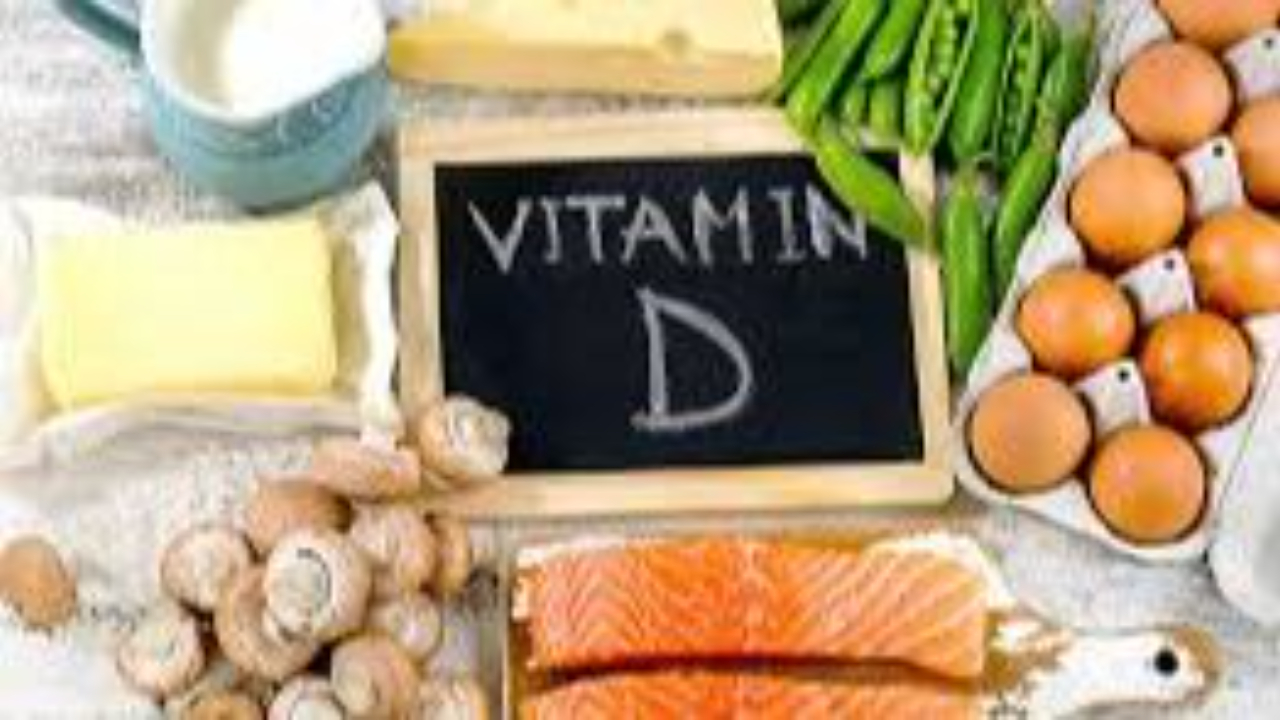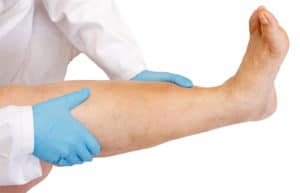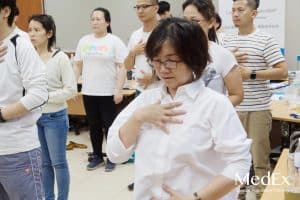
How Can Exercise Prevent and Manage Cancer-related Lymphedema?
cdt cly complete decongestive therapy compression compression bandaging dpt lympedema management lymph drainage lymphatic massage lymphedema lymphedema prevention skin care Mar 21, 2025Exercise can play a significant role in preventing and managing cancer-related lymphedema, a condition that can occur as a side effect of cancer treatment.
Lymphedema is the swelling of a limb or body part due to the accumulation of lymphatic fluid. It commonly occurs after the removal of lymph nodes during cancer surgery or radiation therapy. Here’s how exercise can help in preventing and managing cancer-related lymphedema:
Preventing Cancer-Related Lymphedema:
Education and Awareness: Before starting any exercise program, individuals at risk for lymphedema or those who have already experienced mild lymphedema should be educated about the condition. They need to understand the risk factors and signs and symptoms of lymphedema to recognize it early.
Gradual Progression: If you’re at risk for lymphedema, consult with a lymphedema specialist or CETI Cancer Exercise Specialist to create an individualized exercise plan. Gradual progression in intensity and duration is essential to minimize the risk of overexertion and potential damage to the lymphatic system.
Safe Movements: Focus on safe and low-impact exercises that avoid overstraining the affected limb. Exercises like walking, swimming, and stationary cycling are typically recommended, as they are gentle on the body and promote lymphatic flow.
Managing Cancer-Related Lymphedema:

Complete Decongestive Therapy (CDT): CDT is a standard treatment for lymphedema. It involves manual lymphatic drainage (a specialized massage technique), compression bandaging, skin-care, and exercise. The exercise component, along with the other aspects of CDT, helps to reduce swelling and maintain lymphatic function.
Gradual Progression: Just as in prevention, exercise for managing lymphedema should start slowly and progressively. Focus on a routine that incorporates both aerobic exercise and strength training. Your physical therapist or lymphedema specialist will tailor exercises to your specific needs and stage of lymphedema.
 Compression Garments: Continue to use compression garments as recommended by your healthcare provider during and after exercise. These garments help maintain the reduction of swelling achieved through therapy and exercise.
Compression Garments: Continue to use compression garments as recommended by your healthcare provider during and after exercise. These garments help maintain the reduction of swelling achieved through therapy and exercise.

Breathing and Relaxation Techniques: Deep breathing and relaxation exercises can help manage stress, which can exacerbate lymphedema. These techniques also encourage the flow of lymphatic fluid.
Stay Hydrated: Proper hydration is essential to support the lymphatic system’s function. Dehydration can make lymphedema symptoms worse.
Skin Care: Good skin care is crucial to prevent infections in the affected limb. Keep the skin clean, moisturized, and protect it from cuts and abrasions.
It’s important to remember that the management of lymphedema should always be supervised by a healthcare professional, such as a physical therapist or a certified lymphedema therapist. They can provide you with specific guidance based on your condition and needs, ensuring that exercise is done safely and effectively. Upon completion of CLT or PT, you should consult with a CETI OncoVie™ Exercise Specialist to ensure the safety and efficacy of your exercise program moving forward.
Start your journey to becoming an OncoVie™ Cancer Exercise Specialist with our world-leading courses in oncology exercise.
Recent Posts
Categories
All Categories #cancerrecovery #cancersupport #mindbodyhealing #traumainformedcare #emotionalhealing #cancerwellness #healingaftercancer #survivorshipjourney #personalizedfitness #smarttraining #exercisescience #fitnessforlife #strongerbydesign #individualizedtraining #workoutwisdom #sustainablefitness #injuryprevention #customworkouts #functionaltraining #fitnesseducation #movementmatters #trainsmart #healthfirstfitness #evidencebasedfitness #nomorecookiecutter #exerciseismedicine #fitnesscoaching #safestrength #mindbodyhealth #fitnesspros #tailoredtraining #betterresults #smartworkouts #correctiveexercise #wellnessreboot #fitnessmotivation #movenourishthrive #holisticfitness 1980's ace ace certified ace personal trainer acsm acsm certified active treatment advanced cancer afaa afaa certified age's ai ai assistance alpelisib anti cancer diet anti-inflammatory diet ashkenazi jew attention defecit autoimmune conditions axillary node dissection axillary web syndrome basal cell basal cell carcinoma biomarkers bladder cancer survivor bladder control blader cancer blood cancer blood cancer awareness blood cancer awareness month bone cancer bone density brain fog brain health brca brca positive brca1 brca2 breast cancer breast cancer diagnosis breast cancer patient breast cancer prevention breast cancer prevention diet breast cancer recovery breast cancer recurrence breast cancer rehabilitation breast cancer surgeries breast cancer survivor breast cancer thriver breast cancer treatments breast cancer warrior breast cnacer survivor broad-spectrum sun screen cachexia cambria-1 cambria-2 camizestrant cancer cancer acceptance cancer awareness month cancer cachexia cancer caregiver cancer causing cancer coach cancer community cancer comorbidities cancer diagnosis cancer exercise cancer exercise guidelines cancer exercise specialist cancer exercise trainer cancer exercise training institute cancer fatigue cancer fatigure cancer fear cancer nutrition cancer patient cancer patients cancer prevention cancer prevention diet cancer recovery cancer recurrence cancer rehab cancer rehabilitation cancer related fatigue cancer risk cancer survivor cancer survivors cancer survivorship cancer thriver cancer treatment cancer treatment side-effects cancer treatments with exercise cancer-fighting foods cancer-related cognitive impairment canfipro canfit canfitpro canfitpro certified caregiver carer casein cdki cdt celiac celiac disease ces cet ceti challenge trial chatgpt chemo chemo-induced neuropathy chemobrain chemotherapy chemotherapy side effects childhood cancer childhood cancer awareness childhood cancer awareness month chrohn's disease cimspa climate change clt cly cnacer prevention cognition cognitive decline cognitive function cognitive health cognitive impairment cognitive interventions cognitive stimulation colon colon cancer colon cancer awareness colon cancer patient colon cancer prevention colon cancer survivor colorectal cancer colorectal cancer awareness colorectal cancer awareness month complete decongestive therapy compression compression bandages compression bandaging compression garments cording crc ctdna cure sarcoma cytokines daily exercise daily steps daily walking dairy-free daitr dementia depression depression management depression prevention diabetes diabetes prevention diet dietary guidance dietician dietray guidance difficulty concentratiing disease prevention disease prevention diet dpt dysuria elacestrant end of life energy er antagonist er postive ereps erpr postive ewing sarcoma ewings sarcoma executive function exercise exercise benefits exercise is medicine exercise matters exercise oncology exercises fap fckcancer fear of death fear of dying fitness fitness business fitness certifications fitness continuing education fitness education fitness for survivors fitness industry frequent urination fuckcancer genetic mutations genetic testing genome genomics gentic mutation genx git microbiome gluten gluten intolerance gluten sesitvity gluten-free hairloss healing journey health after cancer health care team healthy diet heart disease her2 hodgkins hodgkins lymphoma hormonal therapy hospice hospice care idea health and fitness igf-1 immunity immunocompromization immunotherapy improved sleep inactivity inflammation inflammatory response insulin resistance issa issa certified issa certified personal trainer jennifer golden junk food lactose late-stage cancer leaky gut leiomyosarcoma lethargy leuemia leukemia leukemia awareness life expectancy liposarcoma liquid biopsy lmt lumpectomy lympedema management lymph lymph drainage lymphangiosarcoma lymphatic drainage lymphatic massage lymphatic system lymphedema lymphedema prevention lymphoma mask medfit medical fitness meditation melanoma melanoma prevention memory loss memory lpases menopause mental fatigue mental fog merkel cell carcinoma metabolic disorders metastatic cancer migraines moevement is medicine moh's micrographic moles mood disorders morbidity multiple myeloma myeloma awareness nasm nasm certified nasm personal trainer nesta nesta certified neuropathy neuropathy management ngs panel test nivolumab non hodgkins lymphoma non-melanoma skin cancer nsca nsca certified nsca certified personal trainer nutrition nutrition after cancer treatment nutrition during cancer treatment nutrition guidance nutrition intervention nutritionist nutrititionist obsity occupational therapist occupational therapy on death and dying oncology care oncology exercise oncology nutrition oncovie oncovie cancer exercise specialist osteoporosis osteoporosis prevention osteosarcoma oxidative stress ozone depletion pain pain management patient navigator pediatric cancer pelvic floor pelvic floor exercises pelvic floor muscle training pelvic floor physical therapy peripheral neuropathy personal trainers physical education physical therapist physical therapy physical therpy continuing education physiotherapist physiotherapy pik3ca pilates instructor pilates instructor training positive mindset processed foods prostate cancer prostate cancer prevention prostate cancer survivor pt qigong radiation therapy registered dietician reiki rheumatoid arthritis ryan glatt sarcoma sarcoma awareness sarcoma awareness month sarcoma community sarcoma strong sarcoma survivor sarcoma warrior sedentary lifestyle sedentary lifstyle skin skin cancer skin cancer awareness month skin cancer prevention skin cancer prevention ideas skin care squamous cell squamous cell carcinoma stage 4 stage four stage four cancer steps steps for health steps per day stress stress management sugar sugar dependence sugar-free sun sun damage sunblock sunburn sunscreen suntan survivor strong survivorship matters synovial sarcoma systemic inflammation tan tanning tanning bed tanning beds tanning industry ten thousand steps terminal cancer treatment efficacy treatment side effects triple negative turcot syndrome type 2 diabetes type two urinary incontinence urination urgency uv exposure uv index uv protection uv rays w.i.t.s. walk for health walking walking for life walking is medicine weight loss well-being wellness world instructor training school yellow for sarcoma yoga instructor yoga instructor training
